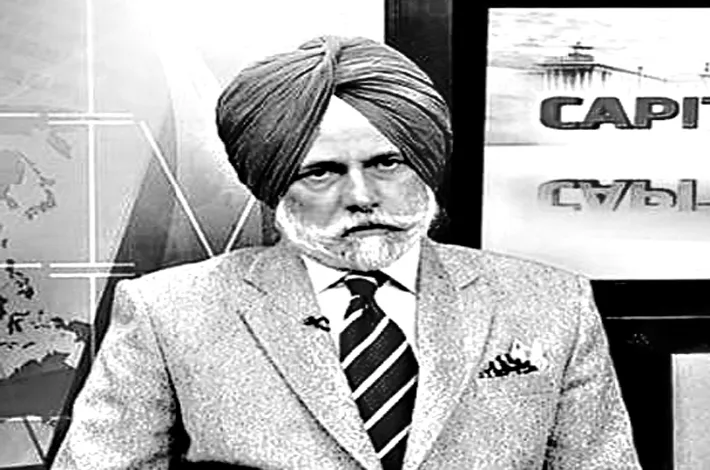Trump 2.0: A collision of the don, technology and radical uncertainty
28-12-2024 12:00:00 AM

Trump's policies could disrupt global balance or reset geopolitics dramatically. Will his bark be worse than his bite?
As 2025 approaches, uncertainty looms over two wars raging in Gaza and Ukraine, with West Asia destabilised by the sudden fall of Syria’s Assad regime on December 8. The passing away of former Prime Minister Manmohan Singh, a day after Christmas, symbolises the end of India’s post-Independence era.
The unseemly debates in Parliament and beyond, commemorating the 75th anniversary of the Indian Constitution, became a Congress-BJP brawl over B.R. Ambedkar’s role.
The saga involved the Congress embracing a fictional past, where it more abused than used the Constitution, and the BJP feigning respect for constitutionalism while desiring to shape it as per its majoritarian instincts.
Political churn is not specific to India alone. In 2024, 76 nations held polls, constituting half the world’s population. In some, like Russia and Venezuela, it was a rigged exercise to claim legitimacy for authoritarian rulers.
In others, like the UK, where Conservatives lost power after 14 years, or France, where the adverse parliamentary elections’ verdict challenged the sitting President Emmanuel Macron, electoral results signalled change.
In India too, people left the BJP in parliamentary elections dependent on allies’ support, which the BJP, by its self-centred agenda and arrogant governance, is defying.
The most challenging development is Donald Trump’s victory in the US presidential election. Although his term begins only on January 20, he is already in the limelight, continuously nominating individuals that reflect loyalty to him and commitment to the Make America Great Again (MAGA) agenda.
Some have been forced to withdraw due to past sexual indiscretions, while some others may yet face the Senate’s disapproval due to lopsided views. For instance, Robert Kennedy Jr., named to lead the health departments, advocates the rejection of vaccines.
The Economist magazine anticipates, in the coming year, an “interplay between Donald Trump, technology, and radical uncertainty.” The global worry is over his threat of imposing retaliatory tariffs of 20% on all nations trading with the US, with China attracting an even higher percentage.
Some aides of Trump argue that his bark may be worse than his bite, as he often uses threats simply as a negotiating tactic. However, Indian analysts missed the implications of Trump’s remark that the US and China could effectively address most contentious global issues if they collaborated.
This has, for decades, been precisely the Indian strategic concern: that bipolar Sino-US convergence would automatically relegate India to a secondary position. Although unstated publicly, the External Affairs Minister S. Jaishankar’s hurried US trip post-Christmas, when official business languishes due to the holiday season, indicates this concern.
The fact that Trump invited, albeit unsuccessfully, Chinese President Xi Jinping for his inauguration without extending a similar offer to Prime Minister Narendra Modi reflects Trump’s priorities.
Reportedly, Hungarian President Viktor Orban, a Trump acolyte who rejects European military support for Ukraine, may also be on the invitees list. No previous US president has invited foreign leaders for the inauguration.
Trump has claimed that he would end the Ukraine war almost instantaneously after assuming office. Russian President Vladimir Putin, who deliberately delayed congratulating Trump after his win, may accept a ceasefire only if Ukraine is arm-twisted into accepting the status quo over land held by either side currently.
Perhaps that explains reports of Russians employing North Korean soldiers to eject Ukrainians from their Kursk region. Ukraine wants to use that occupation to bargain for the return of Ukrainian territory under Russian control.
Although Trump is likely to give Israel a carte blanche to conduct its military operations, Israel, having already decapitated Hamas, may be ready for a ceasefire. Trump fathered the Abraham Accords to normalise Israel-Arab relations. These are now stymied by Israel rejecting both a ceasefire and a two-nation solution to the Israel-Palestine dispute.
Thus, globally, Trump 2.0 can either be an agent of disruptive but positive change or an initiator of global economic and geostrategic bedlam. The US deterrence has mostly stabilised the world, especially since the end of the Cold War in 1991.
Chinese ascendancy and alliance with Russia, Iran, and North Korea is resurrecting a new bipolar order. But China faces economic headwinds, and its GDP, having become three-quarters that of the US, fell to two-thirds by 2021.
The European Union faces economic challenges due to its energy dependence on Russia being disrupted by the Ukraine war and its slow transition to industries of the future.
The feared new standoff between the US and China catches Europe on the backfoot, already hobbled by its centrist ruling alliances breaking down, causing the rise of far-right parties.
India is adopting a wait-and-watch strategy, like most of the world. At the United Nations, the Chinese contribution to the UN budget, at 20% of the total, now rivals that of the US. Trump is likely to withdraw the US from the World Health Organisation (WHO) and UNESCO.
Ideally, after some turbulence, the Trumpian storm would pass. But diminished US deterrence and an isolationist America bode ill for global peace and friendship.








